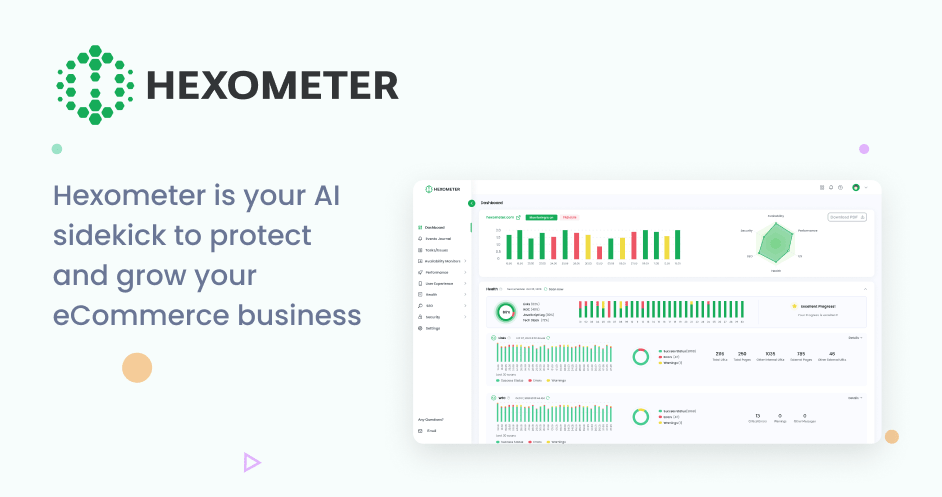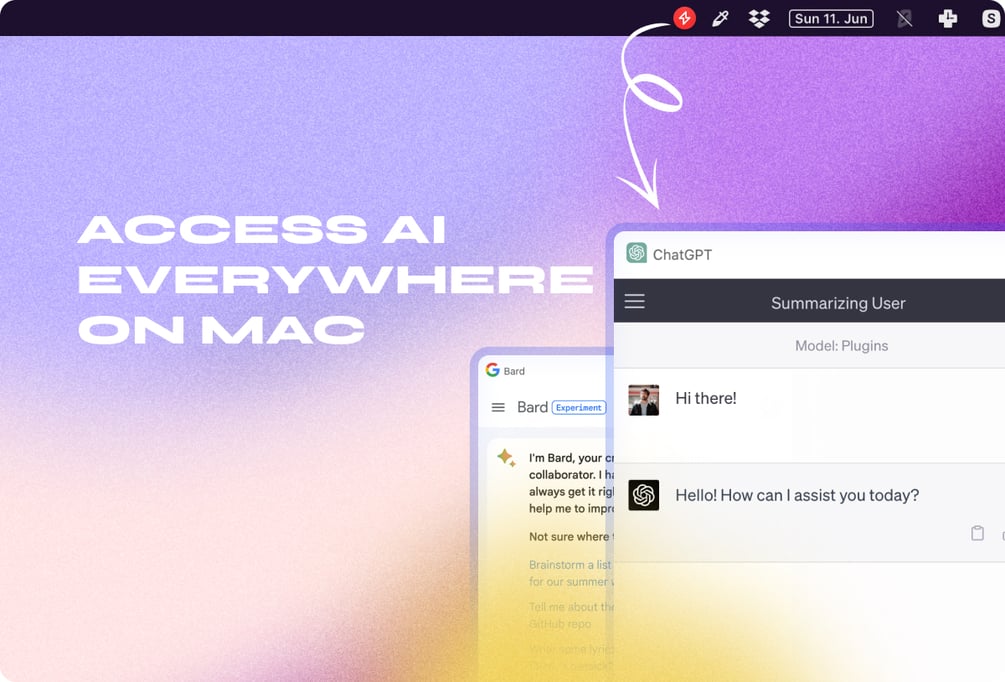
- ( 0 Reviews )
Checkout Hexometer – Website Monitoring and Notification Tool
Product Description
Hexometer is a comprehensive website monitoring tool that offers businesses the ability to proactively identify and resolve issues before they impact customer experience. By continuously tracking six critical areas such as availability, performance, user experience, health, SEO, and security, it ensures optimal website performance and provides real-time notifications via email, SMS, Slack, Telegram, and Trello, enabling agencies to deliver exceptional client service.
Other Product Information
- Product Category: Productivity
- Product Pricing Model: Paid
Ideal Users
- Website Manager
- DevOps Engineer
- Digital Marketing Specialist
- IT Operations Manager
- Web Developer
Ideal Use Cases
For Website Manager
- Monitoring Website Availability: As a website manager, one should use Hexometer to ensure that client’s website is always available to their customers by setting up alerts for any downtime or slow loading times, so that I can quickly identify and resolve issues before they cause problems for the users.
- Optimizing Website Performance: one should use Hexometer to improve the speed of client’s website by identifying areas for improvement in terms of load time, page size, and other performance metrics, and make necessary changes to enhance user experience.
- Enhancing SEO: one should use Hexometer to track client’s website’s search engine rankings and optimize it for better visibility on search engines.
- Securing Website: one should use Hexometer to ensure that client’s website is secure by monitoring for any vulnerabilities or threats, and take necessary measures to protect against cyber attacks.
- Tracking User Experience: one should use Hexometer to track user behavior and feedback on the website to improve customer satisfaction and engagement.
For DevOps Engineer
- Continuously monitor website performance and availability: As a DevOps Engineer, one should use Hexometer to ensure that client’s websites are always available and performing optimally by setting up alerts for any issues that may arise in real-time notifications via email or SMS, allowing to quickly address them before they impact the user experience.
- Monitor website health: one should set up Hexometer to alert of any potential security vulnerabilities or threats to client’s website and take action to mitigate them before they cause harm to the site or their customers.
- Keep track of SEO performance: one should use Hexometer to monitor client’s website’s search engine rankings and make necessary changes to improve their visibility on search engines.
- Monitor user experience: one should set up Hexometer to ensure that client’s website is providing a seamless user experience by monitoring key metrics such as load time, page speed, and uptime, and making improvements to enhance the site’s performance.
- Keep track of ad campaigns: one should use Hexometer to monitor client’s ad campaigns and make sure they are running smoothly, providing real-time notifications for any issues that may arise during the campaign.
For Digital Marketing Specialist
- Monitoring website availability: As a Digital Marketing Specialist, one should use Hexometer to ensure that client’s website is always available for their customers to access and to quickly identify and resolve any issues that may arise, thus improving customer experience and satisfaction.
- Tracking website performance: one should use Hexometer to monitor the performance of client’s website and make data-driven decisions to optimize it for better results.
- Ensuring website security: one should use Hexometer to ensure that client’s website is secure and protect against potential threats, such as malware or hacking attempts.
- Monitoring SEO performance: one should use Hexometer to track client’s website’s search engine rankings and optimize it for better visibility in search engines.
- Tracking user experience: one should use Hexometer to monitor the user experience of client’s website and make improvements to enhance customer engagement and conversion rates.
For IT Operations Manager
- Monitoring website availability: As an IT Operations Manager, one should use Hexometer to ensure that client’s websites are always available for customers to access and use. This tool will help detect any issues before they occur, allowing to quickly resolve them and minimize downtime, which can lead to lost revenue and customer dissatisfaction.
- Improving website performance: one should use Hexometer to identify areas of the site that need optimization, such as slow loading times or high bounce rates, and work with team to improve the user experience and increase conversions.
- Ensuring website security: one should use Hexometer to monitor for any potential vulnerabilities and take action to protect against cyber threats, ensuring customer data is safe and secure.
- Tracking website health: one should use Hexometer to track key metrics such as uptime, response time, and other important performance indicators to ensure the site is running smoothly and efficiently.
- Monitoring SEO: one should use Hexometer to optimize client’s search engine rankings and improve their visibility on search engines.




